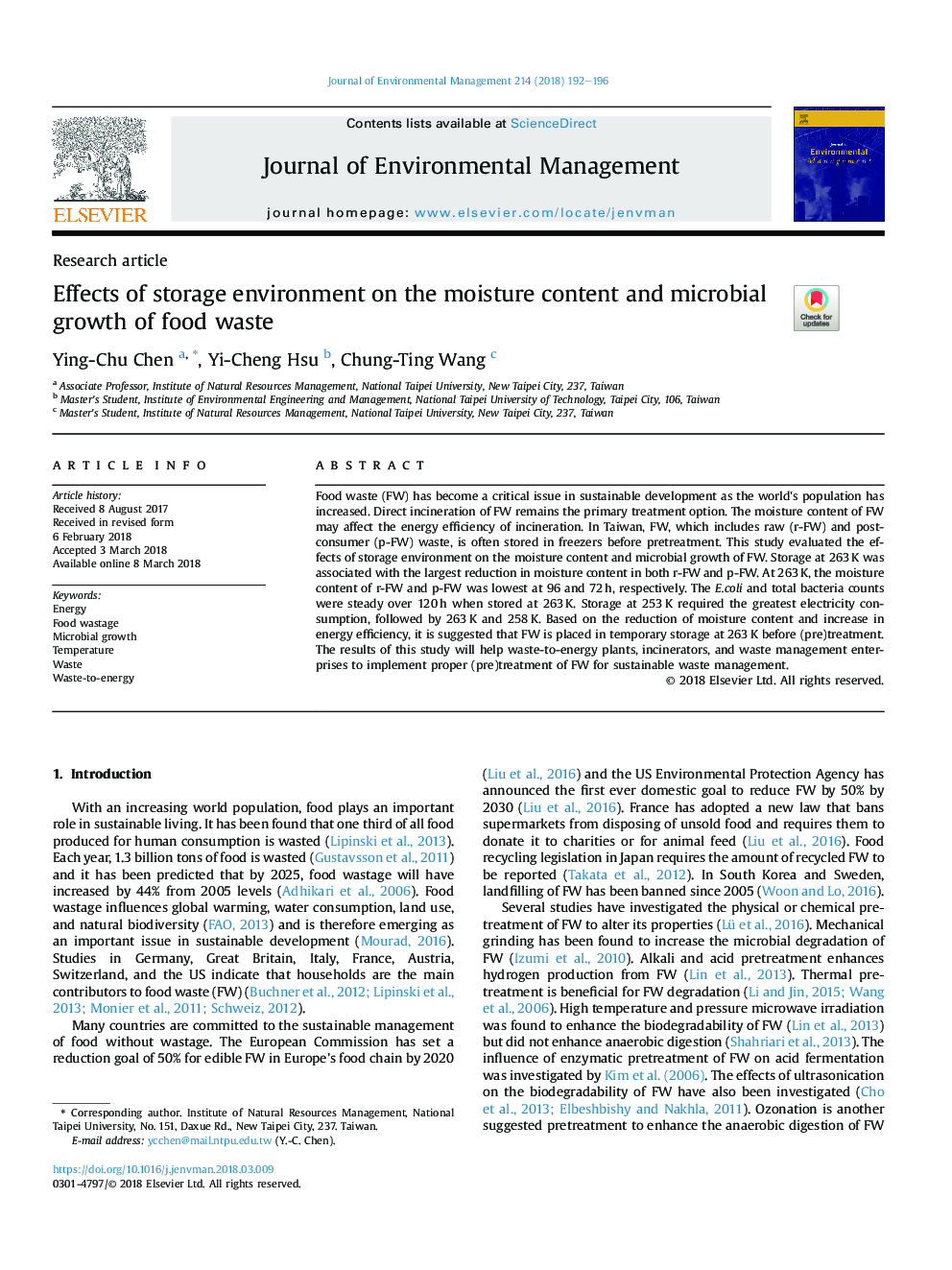| Article ID | Journal | Published Year | Pages | File Type |
|---|---|---|---|---|
| 7477607 | Journal of Environmental Management | 2018 | 5 Pages |
Abstract
Food waste (FW) has become a critical issue in sustainable development as the world's population has increased. Direct incineration of FW remains the primary treatment option. The moisture content of FW may affect the energy efficiency of incineration. In Taiwan, FW, which includes raw (r-FW) and post-consumer (p-FW) waste, is often stored in freezers before pretreatment. This study evaluated the effects of storage environment on the moisture content and microbial growth of FW. Storage at 263â¯K was associated with the largest reduction in moisture content in both r-FW and p-FW. At 263â¯K, the moisture content of r-FW and p-FW was lowest at 96 and 72â¯h, respectively. The E.coli and total bacteria counts were steady over 120â¯h when stored at 263â¯K. Storage at 253â¯K required the greatest electricity consumption, followed by 263â¯K and 258â¯K. Based on the reduction of moisture content and increase in energy efficiency, it is suggested that FW is placed in temporary storage at 263â¯K before (pre)treatment. The results of this study will help waste-to-energy plants, incinerators, and waste management enterprises to implement proper (pre)treatment of FW for sustainable waste management.
Related Topics
Physical Sciences and Engineering
Energy
Renewable Energy, Sustainability and the Environment
Authors
Ying-Chu Chen, Yi-Cheng Hsu, Chung-Ting Wang,
